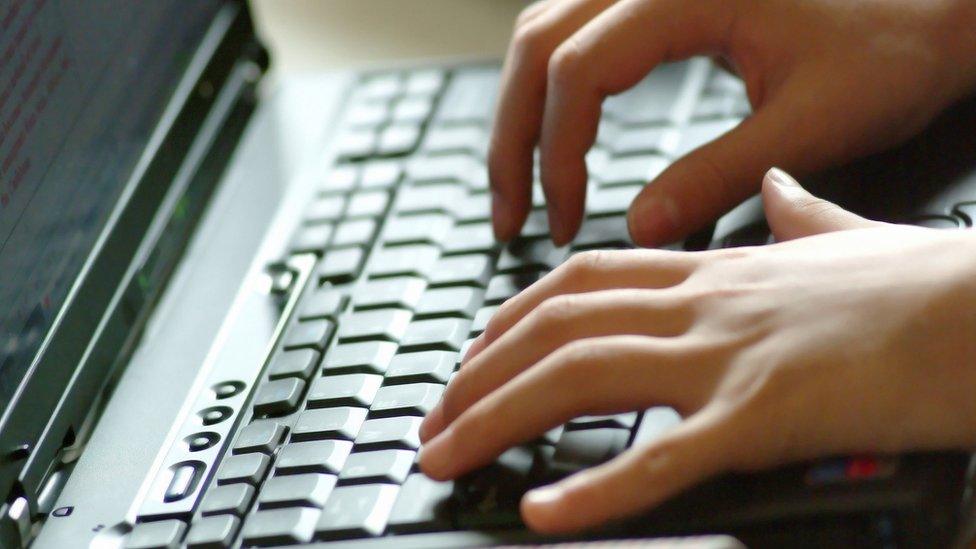Online trolling putting women off politics, says union
- Published

Abuse targeted at politicians on social media is putting some women off standing for public office, a union has warned.
Sexist comments and insults have become too common for people trying to serve their community, Unison Wales, external said.
Labour's Aberconwy parliamentary candidate Emily Owen said she had been trolled by men asking her bra size and telling her to strip for votes.
Parliament has set up a team to support those being targeted.
Political parties say they also try to support candidates who report problems - but some politicians say more needs to be done.
Ms Owen said she was shocked at the trolling on Facebook and Twitter she had been subjected to since standing for election to become an MP.
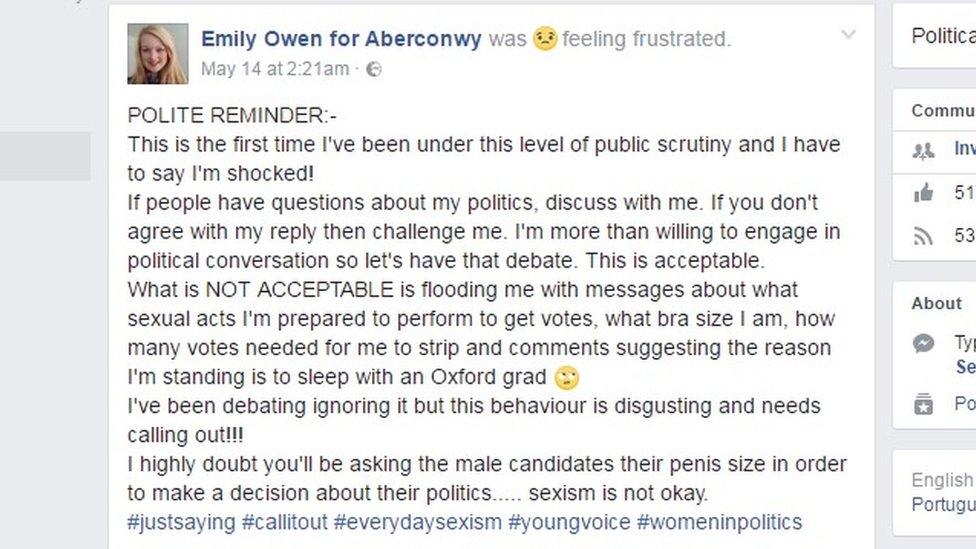
It comes six months after Plaid Cymru leader Leanne Wood revealed some abuse directed at her on Twitter was "vile" - with one man jailed for tweeting her and making reference to rape and another given a community sentence for saying someone should shoot her.
Unison Wales - the public services union with predominantly female members - said Ms Owen and Ms Wood were not alone in receiving abuse online and it had become such a concern that it was now holding training for its members on how to deal with it.
"It's becoming a massive issue - it's sexism, bullying, people being judged on their appearance... and people shouldn't have to put up with it just because they are in a prominent position," said Jenny Griffin, who runs Unison's cyber bullying course.
"It's definitely putting women off standing for these roles, particularly women with kids, as they don't want to put their family through it as the people around you often get targeted too."
'Homophobic comments'
Chris Bryant, the former Labour MP and now parliamentary candidate for Rhondda, said he also believed gay men and people from ethnic minorities got the brunt of abuse.
"It's undoubtedly got worse in the last two to three years," he said.
"I get it daily - lots of swear words, homophobic comments and downright lies. People write anonymously on social media things they wouldn't dream of writing in a letter or saying to your face.
"I'm absolutely certain it puts a lot of women off, particularly those with children. I know lots of people who have thought about going into politics and have decided they simply don't want to put themselves up for it - you get this endless barrage."
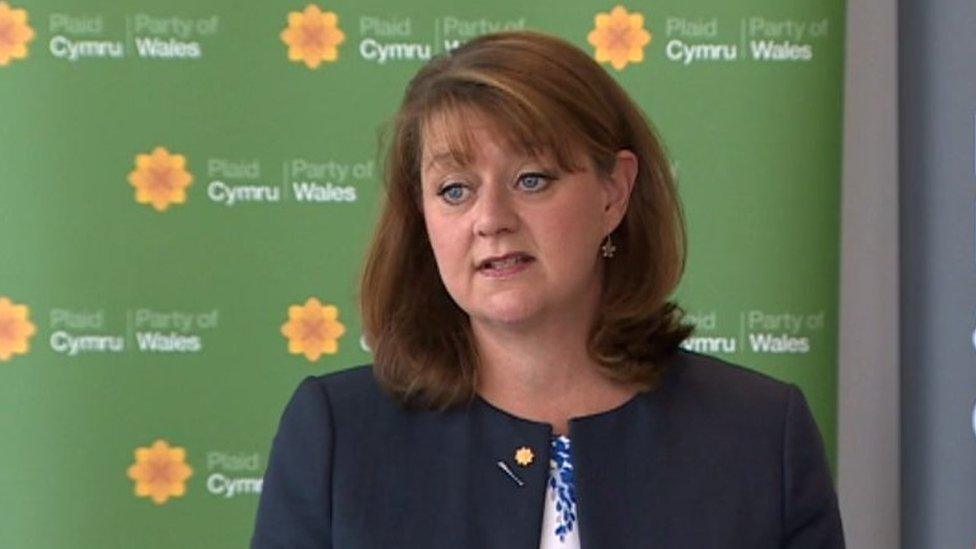
Leanne Wood said she was subjected to "vile" abuse on Twitter
Liz Saville Roberts, Plaid Cymru's parliamentary candidate for Dwyfor Meirionnydd, introduced a bill to tackle online abuse and cyber crime while working as an MP.
"I have been speaking to female politicians across all party lines and this is an issue, although I'd say it seems to affect younger women more," she said.
"I believe social media platforms should be doing more to tackle this. They have a responsibility and I feel they are lacking in answerability."
'Block people'
But Prof Matthew Williams, from Cardiff University's criminology department said he believed the benefits of social media outweighed the negatives.
"I don't necessarily think problems with social media would put younger people off a career in politics and in many ways it's an advantage for spreading their message," he said.
"But you need to be savvy to avoid the dangers and victimisation. If anybody is receiving a torrent of abuse, the first thing they should do is call the police.
"If police don't take action, softer measures can also be used, like blocking people. You can also ask Twitter and Facebook to remove comments."
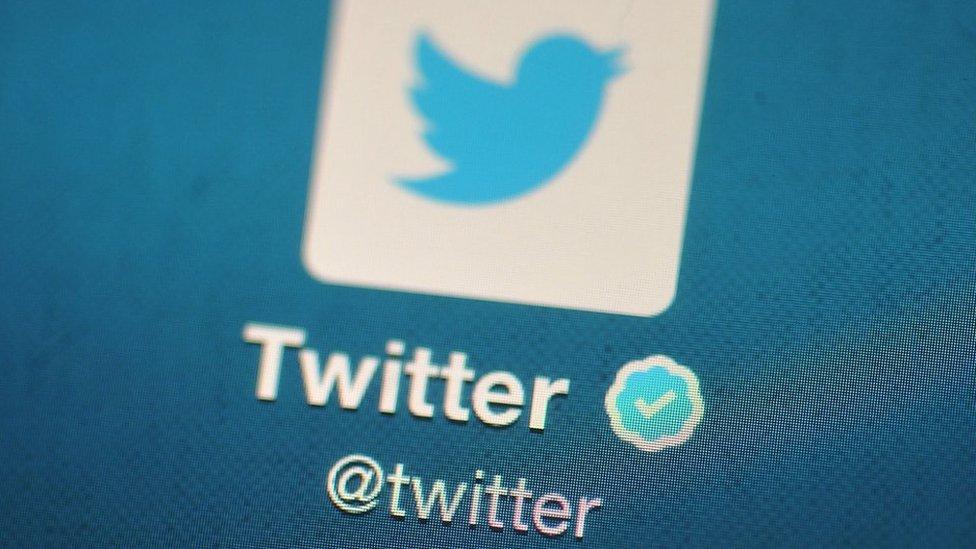
Prof Williams said his team had been studying trigger points, external for abuse on social media and political events often prompted people to express extreme views.
"We see spikes, if you look at the data. Events like the general election will see a huge spike in online hate," he added.
"We also saw it after the EU referendum, when emotions run high and extreme views are galvanised in certain groups in society."
It is an issue that the political parties say they are taking seriously.
A Conservative spokesman said: "When online abuse is bought to our attention, we support candidates and MPs in dealing with it.
"In serious instances of online abuse we would always recommend reporting it to the police."
The Liberal Democrats and UKIP have also been asked to comment.
- Published21 March 2017
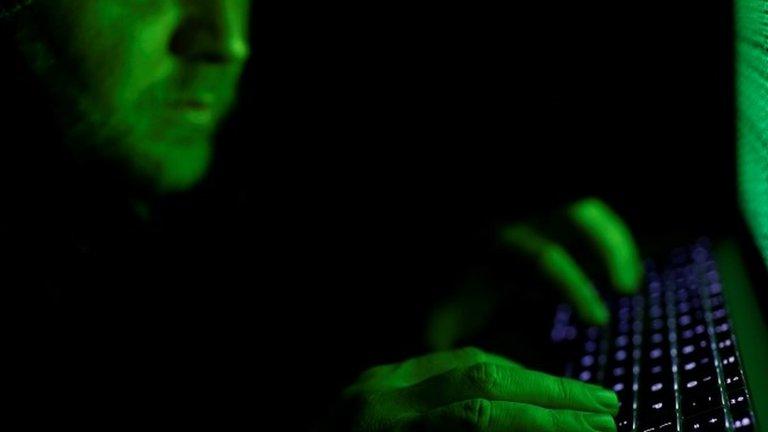
- Published20 March 2017
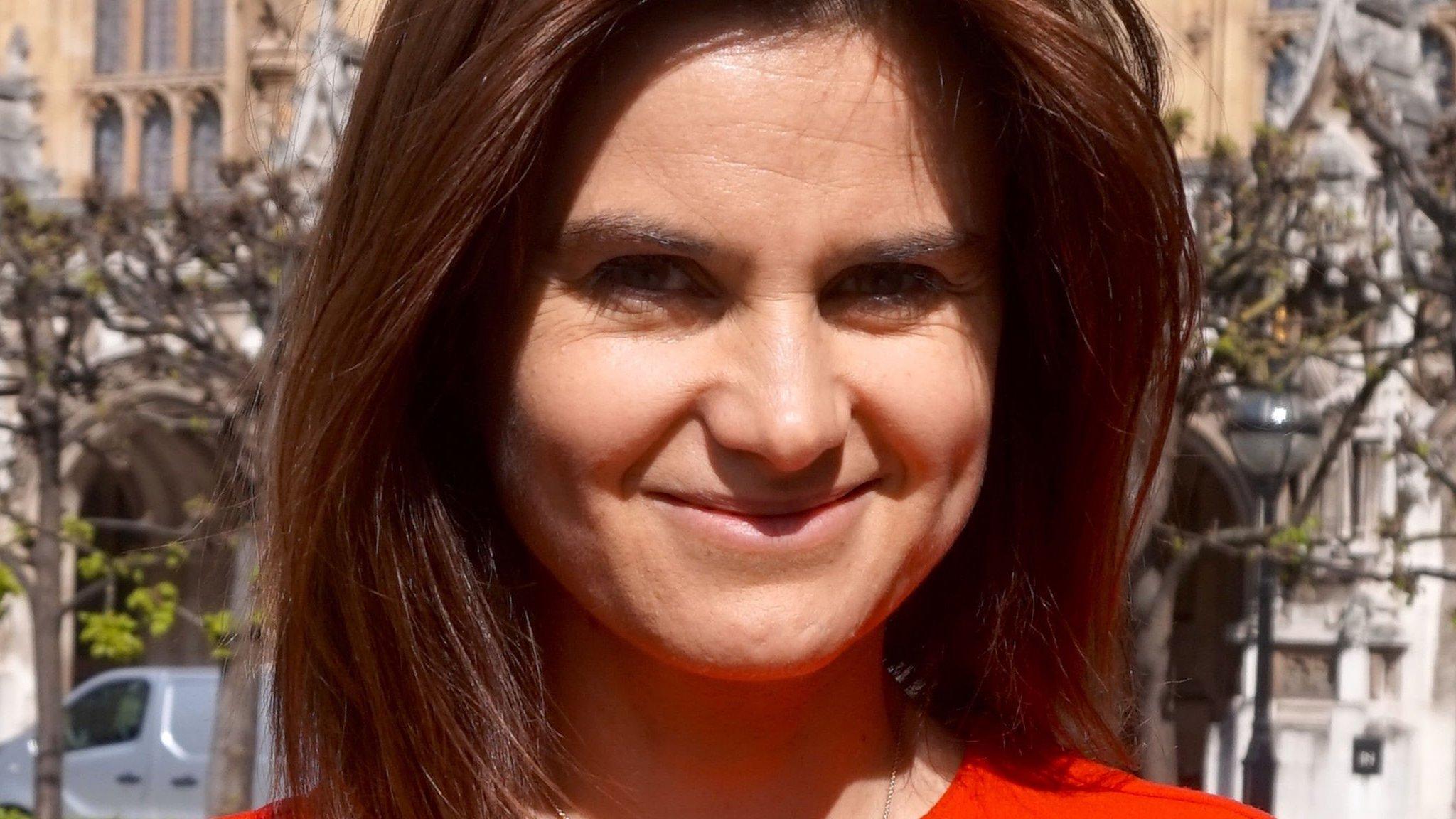
- Published20 November 2016
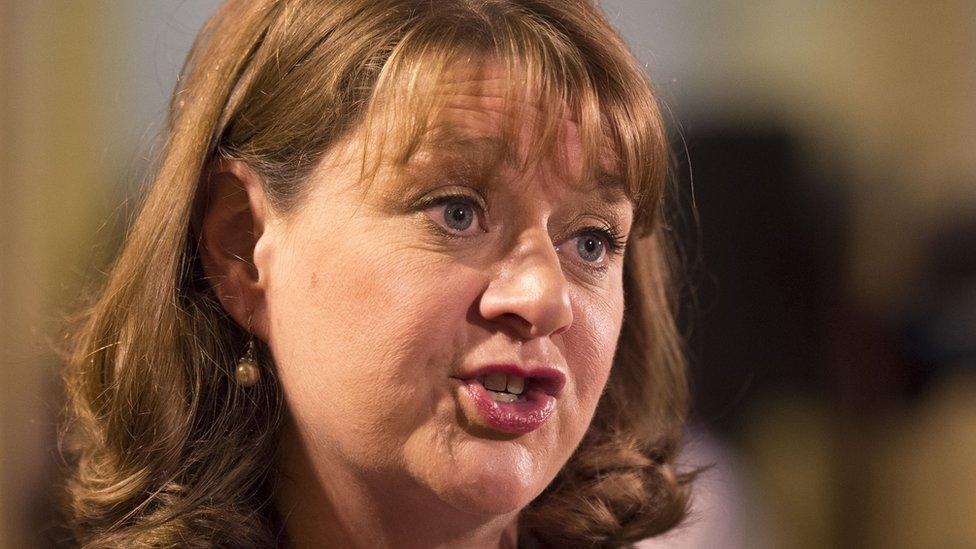
- Published15 November 2016
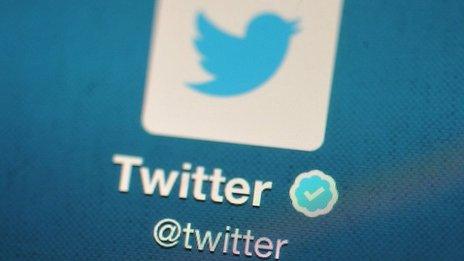
- Published8 November 2016
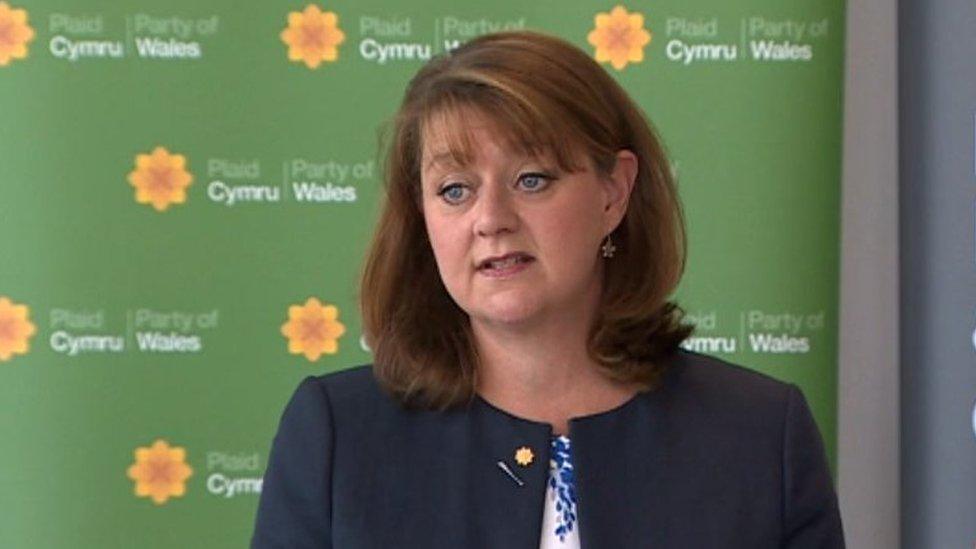
- Published15 July 2016
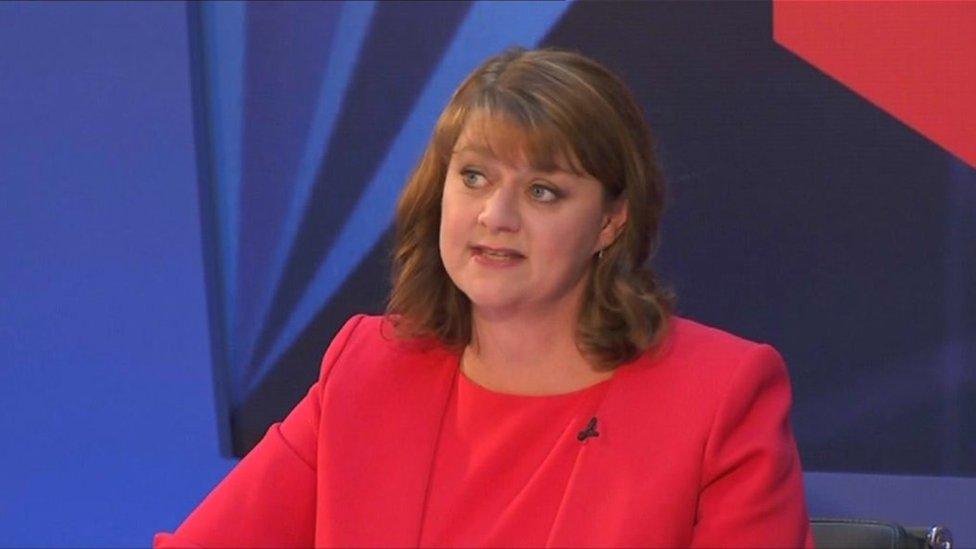
- Published9 March 2016
